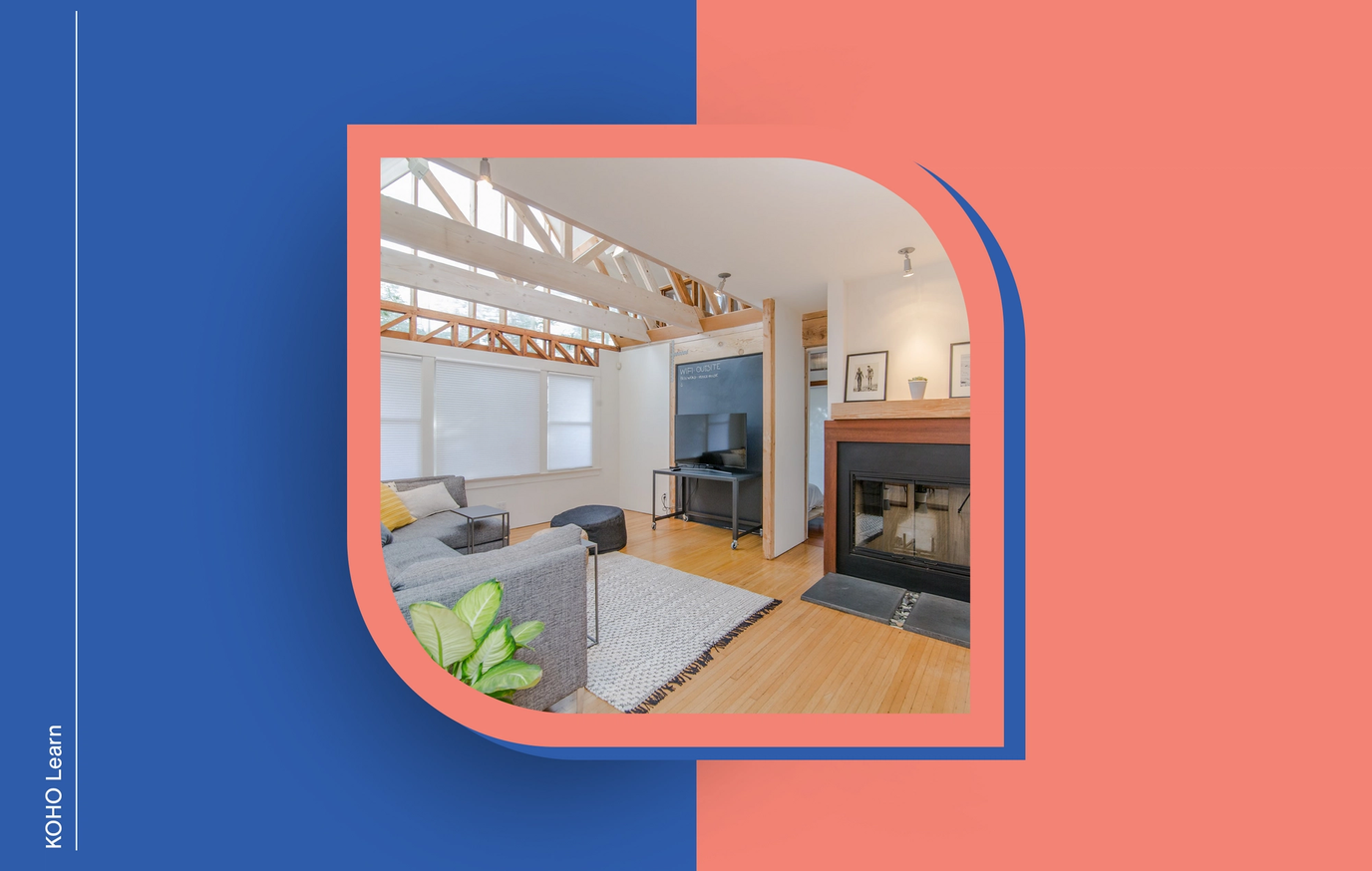Back to learn
Does inflation make it harder to purchase a home?

Written By
Rounding it up
Inflation is the reduction in purchasing power of a currency, typically over a period of time.
Inflation can make purchasing a home more difficult because prices will be higher for both purchasing and upgrading a home.
It seems like it could be a good time to sell, but remember that you have to live somewhere; sellers are often buyers too.
Buying a home is a big decision. Whether it's your first or fourth, purchasing a new domicile can be stressful, exciting, and, above all, very expensive depending on where you live. Looking at free-standing homes right in the centre of Toronto? Get ready to toss in seven figures. Yikes.
The last thing you want to hear is that there is something that can make purchasing your home more difficult right? Well, if you only wanted to see happy news today, maybe check out one of our other blog posts… inflation can make buying a home harder. But, there are silver linings and ways you can use inflation to your advantage. Read on to learn more.

Quick refreshers
Before we leap in, let's get some quick refreshers on the two terms we’re talking about.
Inflation
Inflation is the reduction in purchasing power of a dollar. It’s caused by two things that happen naturally in economies. The first is more money in the economy, often caused by low interest rates. If it’s cheaper to borrow money, people will, generally speaking, borrow more of it. The second is a decrease in the availability of goods. This makes specific items more difficult to come by, thereby increasing their price. Simple supply and demand. Inflation is often remedied by central banks, like the Bank of Canada, increasing the interest rate that it tells banks to charge one another. Right now that’s set at .5%, up from .25% at the beginning of March.
Mortgages
Let’s face it, you don’t have several hundred thousand dollars hanging around. Perhaps you do, but most don’t. Mortgages help consumers buy homes. They come in all shapes and sizes, from fixed-rate to variable-rate, and from small to large. You’ll agree to a purchase price and your mortgage company will pay the seller and start your loan. Mortgages typically have a length of 1-10 years (five years is the average) at which time you’ll rework your mortgage with the lender at updated interest rates. Mortgages are portable and can be taken from purchase to purchase. Both of these aspects make Canadian mortgages unlike those of our American neighbors, where mortgages are linked to the home itself and typically run 15-30 years.
Inflation can make home-buying harder
Here’s why…
Prices will be higher
The simple fact is, in an inflationary environment, items of all shapes and sizes are more expensive. This includes homes just as much as it includes groceries, gasoline, and your favourite pair of shoes. Keep in mind too, that this includes items that are outside of the purchase price of a home, like insurance premiums or materials for repairs. If you purchase a home that needs a little bit of work, your purchase price is effectively increasing as well. The wood, sheetrock, screws, and plumbing you’re planning on buying to redo that bathroom will all cost more than they would before inflation kicked in.
Can be harder with a variable-rate mortgage
A variable or floating rate mortgage can make managing your home purchase far more difficult. Variable-rate mortgages are directly pegged to the interest rate set by the Bank of Canada. When it fluctuates, so does the mortgage rate. The alternative is taking a fixed-rate mortgage as opposed to a variable rate. The rate here will be slightly more expensive than a variable rate but won’t fluctuate, which makes planning a lot easier.
Are there other things that make purchasing a home harder?
There are lots of other items that can affect the price of your home as well. This can make your purchase slightly more difficult to manage.
Low credit score
Remember, that outside of the prime rate set by the bank of Canada, your interest rate is almost entirely dependent on the bank's belief in your ability to repay the loan. This means that if you have a checkered credit history, you may have to pay a higher interest rate to offset the risk faced by the bank. Additionally, a lower credit score can lower the overall amount a bank is willing to lend to you to buy a home. This can more directly restrict your ability to purchase the home that you want.
Popularity
If you’re looking to buy a home right in downtown Vancouver, it’s going to be tough, plain and simple. This is true at any time and with perfect credit conditions, but if you have a smaller downpayment (or have to use a mortgage at all) you may not be able to get the home that you want.
Smaller downpayment
If you are only able to commit a small amount of cash to your home purchase, the bank may not be willing to lend as much money to you. Moreover, buyers like to see down payments when selecting between different buyers. If you’re in a bidding war, buyers may use the amount of cash you’re bringing to a transaction in their decision.
Mortgages, generally
There are so many individuals looking to buy homes that sellers have a number of different buyers from which they can select. If they’re choosing between a buyer bringing all cash to the transaction and one bringing a downpayment and a mortgage, more often than not, they’re going to select the buyers with the cash. Cash is easier and gets paid out faster.
What about selling a home?
By reading through the above, It may sound like it’s a great time to be a seller. It’s true, if you’re selling a home now, you stand to make more money than you did previously. Remember, however, that everyone needs a place to live and sellers will, more often than not, also be buyers. If you plan to move to a far cheaper area or rent instead of buy, then you could be in very good shape. However, selling and buying often go together.

But you should buy now
Wait huh? Yep. Somewhat paradoxically, it makes the most sense to buy right now, as opposed to waiting. That’s because measures that the Bank of Canada puts in place to fight inflation take a while to kick in. In addition, supply constraints will likely continue to be a problem. Your money today is worth more than it will be in six months, more than likely. It’s never a great idea to buy at the top of the housing market, but the alternative is waiting until your money is worth less.
Inflation makes home buying harder
Unfortunately, it's true: Buying a home during a time of inflation can make things far more difficult. Still, now may be the right time to buy, especially if measures used to control inflation take some time to hit the economy and supply constraints continue. Remember, the first step to any large purchase is budgeting and saving. Those two things together make any home buying process easier, regardless of the environment.

Dan Bucherer
Dan is a runner and writer living in the Washington, D.C. area, where he currently works for a financial services trade association as the Communications Director.